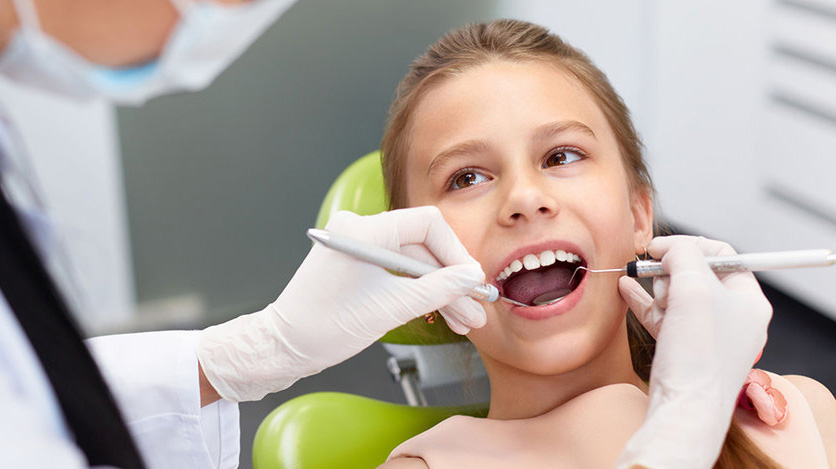With all the sugar in foods and a busy schedule, Pre-teens often create wear and tear on their dentition, causing apprehension for their caring parent(s).
Mississauga children have much to contend with from their rigorous sports schedules and all their homework from our local schools. Hence, in their minds, care of their teeth can be one of the last priorities. St. Lawrence Dentistry would like to work with you and your children to make sure they have healthy teeth during this critical period of life and beyond.
As parents and as your child’s dentist, we must keep reminding children in this age group why oral hygiene is essential and what they should do. Most fundamentally, we need to remind them that it is crucial to “brush twice a day” and make sure they do not miss the permanent molars in the back. Many children aren’t interested in tooth brushing per se, but they care about their looks. Sometimes it helps to explain how good home care can lead to a healthy appearance. Once your child understands that improper oral hygiene can lead to missing, decayed, and stained teeth, they will be more motivated to care for themselves.
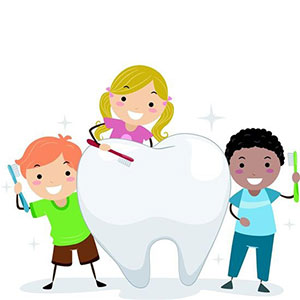
St. Lawrence Dentistry’s friendly dental hygienists would be happy to have the opportunity to coach your child on the best oral care routines for them. Of course, leading by example goes a long way in this impressionable age. Children who see their parents having an excellent oral health routine are more likely to adopt this. Children often love to have the excuse they “ran out of floss”, so it’s essential to have an adequate supply at home. It helps not to have too much junk food at home, so the only options available will be healthy foods like vegetables. Fruits also provide excellent nutritional benefits but have more sugars and acidity, leading to demineralized tooth enamel. Therefore, we recommend you may consider telling your child to rinse with water after fruit consumption. If your child’s teeth are becoming soft, some products can help remineralize your child’s teeth before they turn into cavities.

One well-researched product to help prevent cavities is MI Paste, and you can learn about it here:
Tweens usually lose all their primary dentition between 11 to 12 years. Many teeth come and go during this period, and eventually, more permanent teeth will be present than primary ones. The adult dentition usually appears and presses on the primary teeth when the adult roots are approximately 65 percent developed. If the adult teeth grow slower than usual, this will delay the eruption, and the primary teeth will stay longer. If all the permanent teeth have not come in by age 14, an adult tooth may not be present under the primary one. Another possibility is that the permanent tooth erupts sideways, so it can’t come in. Dr. Hawryluk Jr. may recommend taking an x-ray to check on the status of the new teeth. We will discuss all the options with you if any action is needed to correct the teeth’ eruption. Referral to an orthodontist is sometimes required; there are several excellent ones in the Mississauga area. If the x-ray reveals no permanent tooth, sometimes Dr. Hawryluk may recommend no treatment as these retained primary teeth can last many decades into adulthood. If they eventually become symptomatic years later, Dr. Hawryluk can discuss the possibility of restoring the space with several possible options.
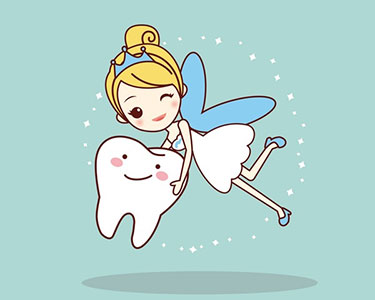
When your child is in for their hygiene visits at St. Lawrence Dentistry, we will make sure your child is aware of all the newly erupted teeth and how to care for them adequately. Since the new “12 year molars” or “second molars” are the very back teeth (most distal), they are easier to miss when brushing, and there is a higher incidence of cavities. At the same time, the permanent canines come in, which are critical teeth. The canine teeth are the longest and sometimes the strongest ones and take the grinding forces’ brunt in your child’s developing dentition. Dr. Hawryluk will see if these teeth are coming in ideally and make recommendations if they are not. Do not worry if the teeth come in at different ages. Every child is unique, and the time of eruption of these teeth can range several years.
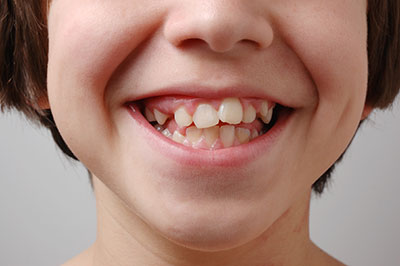
Occasionally “pediatric dental x-rays” reveal an extra tooth. Sometimes these extra teeth have no room to erupt above the gum line, crowd other teeth, or pose an esthetic issue. These extra teeth are called supernumerary teeth, and the most prevalent one is the mesiodens – it derives its name from the fact that it resides in the middle of the two upper central incisor teeth. In addition to the issues above common to supernumerary teeth, the mesiodens can cause cyst formation and are common sites for debris impaction between teeth. If Dr. Hawryluk detects the presence of supernumerary teeth, he will discuss whether he feels this will pose an issue for your child. Sometimes these teeth need removal.
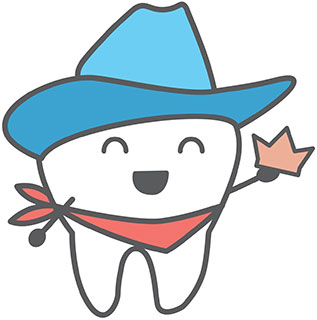
Some primary teeth are more resistant to naturally coming out than others. Primary teeth that are more stubborn to come out are often ankylosed – a fusion of the tooth directly to the bone instead of having a ligament separating the tooth and the bone. If a tooth is not coming out and it is affecting the positive development of your child’s jaw, Dr. Hawryluk may recommend the removal of an ankylosed baby tooth. The procedure for removing these more robustly seated teeth is slightly different. To lessen the force in removal, Dr. Hawryluk will sometimes section the ankylosed tooth and remove it in pieces. That way, less pressure needs to be used to remove them, making for a more comfortable dental visit for your child. This condition is most prevalent in the lower primary molars and correlates with children who grind their teeth.
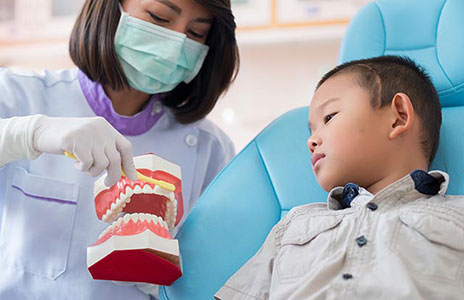
Some children need orthodontic care in this age group. For example, appliances called palatal expanders push the jaw in a favorable growth direction. However, there are instances where early intervention is appropriate, and there are also other cases that are better to wait until the jaw is fully developed. Dr. Hawryluk can discuss the relative indication for orthodontic treatment with you. You can decide together with him if you would like your child to have a referral to an orthodontist. Several excellent orthodontists in the Mississauga area with St. Lawrence Dentistry work closely. If you live in the Port Credit area, Dr. Hawryluk may refer you to Dr. Virdee, who provides excellent treatment.
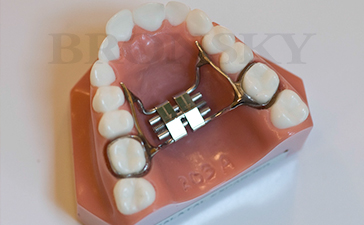
Dr. Virdee’s clinic is in Credit Landing Shopping Center, and her website is: https://hometownortho.ca/
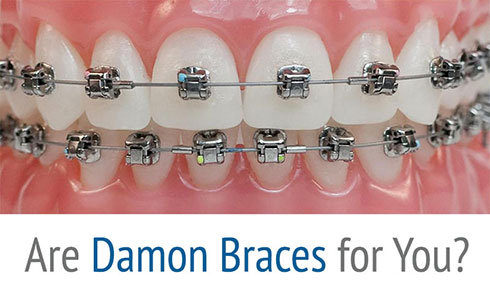
With all the demanding sports programs in Port Credit, it is common for a child’s front tooth to get knocked and loose during physical activity. Also, other reasons, such as dental bone conditions or a traumatic bite, make a child’s permanent tooth mobile. If your child’s tooth becomes loose from a simple fall or sports, please call St. Lawrence Dentistry. After business hours, our friendly live answering service will promptly field the call and relay the message to Dr. Hawryluk Jr. Your child may need a temporary splint or other treatments to help tighten the tooth. In addition, some bone conditions loosen children’s teeth, such as Juvenile Periodontitis – a rare condition that needs immediate attention. If found, Dr. Hawryluk will ensure appropriate treatment and may refer you to a “periodontal specialist”. One excellent periodontal specialist in Mississauga is Dr. Guy Aboodi.
Dr. Aboodi’s website is here: http://www.gaperio.com/
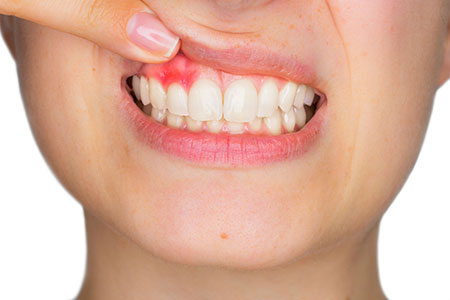
A loose tooth is the result of too much force when biting down. Dr. Hawryluk can sometimes gently contour the tooth in question to ease the tooth’s pressure, thus allowing it to tighten up – this is called selective contouring and is an easy process for the pediatric dental patient if required.
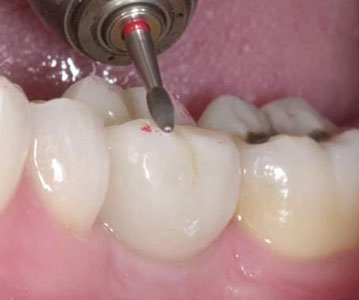
Issues with bad breath can peak around this age group as children’s eating habits sometimes change during this time, and oral home care is sometimes not a priority. However, if you suspect a breath issue for your child, Dr. Hawryluk and our dental hygienists can see what is causing this, and we will work with your child to resolve this.
For more information on correcting “bad breath,” please visit us here:

St. Lawrence Dentistry would like to be your child’s dentist for this period and beyond. We are committed to offering the best possible dental care for your child and your family. Please call us if you would like to visit our office.
References: Your Childs Teeth, Weidman
- St. Lawrence Dentistry Looks Forward To St. Patrick’s Day! - March 12, 2025
- Understanding Dental X-Rays and Radiation: What You Should Know - January 13, 2025
- Happy New Year from St. Lawrence Dentistry! - December 30, 2024



